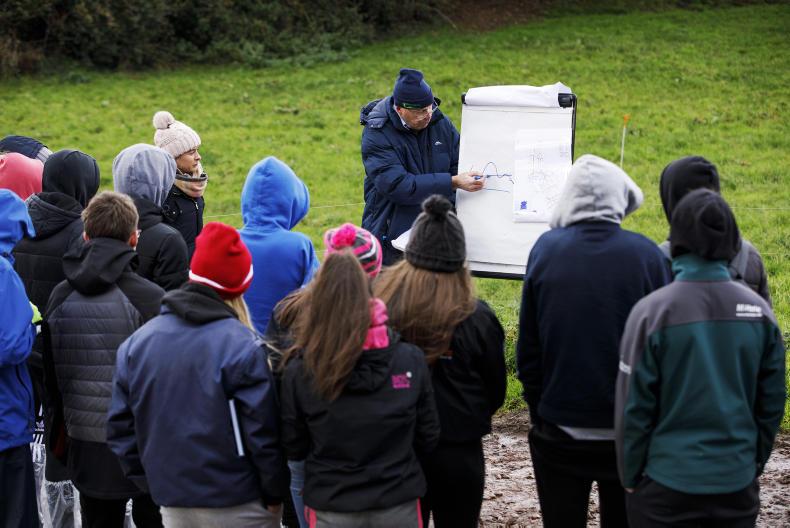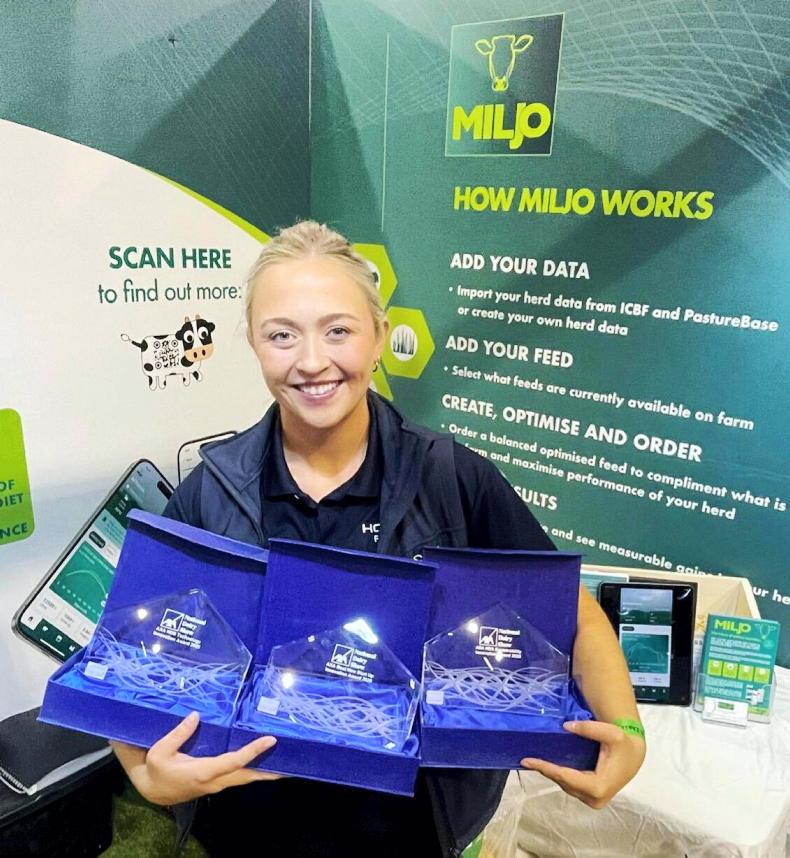Leaving Certificate students in fifth and sixth year are invited to attend the Teagasc college open days to see what is on offer. With the mocks in the rearview mirror, now is a good time for students in sixth year to see what is on offer at one of the seven different Teagasc colleges around the country.
Whether it is agriculture, horticulture, equine or forestry, you can do a Level 5 and Level 6 course of each discipline at one of these centres.
The question that you have to ask is, which discipline interests you most? While six out of the seven colleges offer a Level 5 agriculture course (Table 1), the areas that each college specialises in for the level six advanced certificate is more specific.
Most students now go on to do their level six certificate, which takes a further year, as it is qualifies you for young trained farmer relief, etc. If, for example, the advanced dairy or drystock courses interest you, then most of the Teagasc colleges offer that as an option in year two.
However, if you are interested in crops, machinery, pigs or forestry, your choice of Teagasc college is more limited (see table). It is worth knowing this in advance of the open days, so that you can ask the right questions when you are there.
The open days are a chance for students to have a look at the college, its facilities and talk to members of staff. There will be tours on the day and plenty of information on what’s on offer.
There are aspects of the Level 5 and Level 6 course where there is a heavy emphasis on theory and it would be easy to teach it all in a classroom,” says Stephanie Scully, assistant principal at Gurteen College.
“We try to counteract this by giving students a scenario here on the college farm that applies to the theory they have to learn for their exam. They must either work out how to solve the problem of the scenario posed or we will talk them through how the scenario played out.
“It is also very often the case that a classroom-based class very quickly turns into a class out in the yard because something relevant to the class topic is happening outside. It’s not always planned.
“The teachers and farm staff stay in close contact and so it might be as a result of a conversation in the hall five minutes before class or a quick phone call from the farm enterprise manager to say there might be something interesting outside that day.
“We are absolutely committed to having students see the theory play out in real life as much as possible.”
There are research farms at most of the colleges. There are also sector-specific learning resources, eg the pig students at Clonakilty and Ballyhaise will have access to the pig research unit at Moorepark for their courses. Meanwhile, there are two horticultural colleges to enable hands-on learning for horticultural learners.
Full-time students spend time away from the college on a host farm. This practical learning period (PLP) is part of the Level 5 and Level 6 programmes.
Application deadline
Level 5 Agriculture: open now until 30 June.
Level 5 equine: open now until 3 June.
Level 5 horticulture: open now until 11 August.
Supports
Each college has an access officer who can assess the learning support requirements of learners with recognised needs or disabilities. For more information, contact the individual colleges directly.
Also, Teagasc provides student maintenance grants to eligible students participating on full-time Level 5 and Level 6 programmes. Assessment for eligibility is based on criteria similar to those for higher education student maintenance grants. However, Teagasc grant applications are not processed by SUSI. Additional information can be accessed at: www.teagasc.ie/education/going-to-college/grants/
Mature students
For those who are interested in doing a Green Certificate but are not in the school-leaver category, there is a part-time option as well as a distance-learning option.
Part time
For the part-time course, it is not necessary to have a qualification beforehand.
It is designed for students who are 23 or over, and want to complete the course on a part-time basis. It takes two, to two-and-half years to complete and it is run in the agricultural colleges and Teagasc education centres when there is enough demand and teaching resources in a given area.
Distance learning
Meanwhile, the distance learning course is for graduates from other non-agricultural award programme who are interested in farming. It takes 15 to 20 months to complete. Again, the course is offered at Teagasc regional education centres and agricultural colleges.
Mountbellew Agricultural College
4 March
9.30am to 11.30am
Eircode: H53 WE00
Phone: 0909 679205
Email: bernie@mountbellewagri.com
Ballyhaise Agricultural College
6 March
10am to 1pm
Eircode: H12 E393
Phone: 049 4338108
Email: ballyhaise.college@teagasc.ie
Clonakilty Agricultural College
6 March
Tours start at 11am and 12pm
Eircode: P85 EK80
Phone: 023 8832500
Email: clonakilty.college@teagasc.ie
Kildalton College
6 March
Tours start at 10am and 11am
Eircode: E32 YW08
Phone: 051 644400
Email: reception@kildaltoncollege.ie
Gurteen College
11 March
10.30am to 12.30pm
Eircode: E53 TP93
Phone: 067 21282
Email: info@gurteencollege.ie
College of Amenity Horticulture, Botanic Gardens
12 March
12pm to 3pm
Eircode: D09 YV29
Phone: 01 8040201
Email: botanic.college@teagasc.ie
Salesian Agricultural College, Pallaskenry
12 March
10.30am to 12.30pm
Eircode: V94 V8N3
Phone: 061 393100
Email: info@pallaskenry.com









SHARING OPTIONS